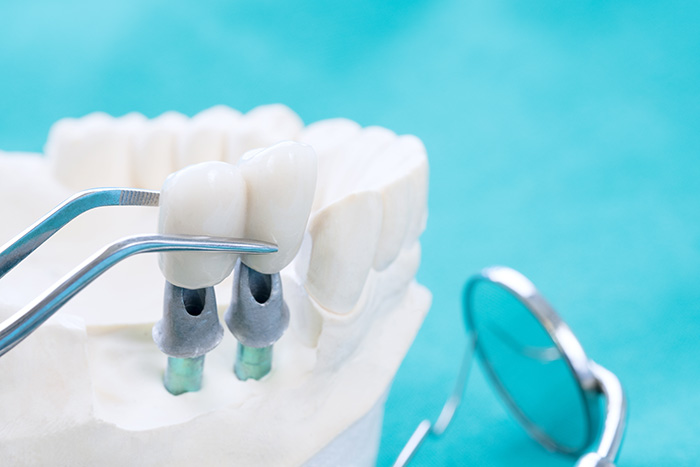Dental implants offer a transformative solution for those seeking a reliable and aesthetic remedy for missing teeth. With advancements in dental technology and techniques, achieving the perfect fit with dental implants has become a hallmark of modern dental practice. This article explores the benefits, process, and considerations of dental implants, ensuring you understand how to achieve a flawless fit and restore your smile.
The Basics of Dental Implants
Dental Implant Practice in Dubai are artificial tooth roots, typically made from titanium, that are surgically placed into the jawbone to support replacement teeth. The procedure is designed to offer a stable and durable foundation for dental crowns, bridges, or dentures. Implants are a popular choice due to their natural look, function, and longevity compared to other dental solutions
 .
.
Achieving the Perfect Fit with Dental Implant Practice
Perfect fit with dental implants is crucial for their success and functionality. A well-fitted implant integrates seamlessly with your existing dental structure, mimicking the natural tooth's appearance and function. To achieve this, dental professionals use advanced imaging and diagnostic tools to plan the implant placement with precision. This detailed planning ensures that the implant aligns correctly with your bite and adjacent teeth, minimizing the risk of complications and discomfort.
The Importance of Comprehensive Assessment
Before placing a dental implant, a thorough assessment is conducted to evaluate the health of your jawbone, gums, and overall dental structure. This assessment typically includes X-rays, CT scans, and a detailed examination of your oral health. The results guide the planning process, helping to determine the most suitable implant size, type, and placement location for your unique needs.
Customized Treatment Plans
Each patient's dental anatomy and requirements are unique, making customized treatment plans essential. Dental professionals create a personalized plan based on the assessment results, ensuring that the implant is positioned optimally to support the prosthetic tooth or teeth. This personalized approach is crucial for achieving the perfect fit and ensuring long-term success.
The Implant Placement Procedure
The dental implant procedure generally involves several key steps:
- Preparation and Anesthesia: The area where the implant will be placed is prepared, and local anesthesia is administered to ensure comfort during the procedure.
- Implant Placement: The dental implant is carefully inserted into the jawbone through a small incision in the gum. Precision is critical to ensure the implant is correctly positioned and securely anchored.
- Healing Period: After placement, the implant requires a healing period to integrate with the bone through a process called osseointegration. This period allows the implant to become a stable part of your jawbone.
- Abutment and Crown Placement: Once healing is complete, an abutment is attached to the implant, and a custom-made dental crown is placed on top. The crown is designed to match the shape, color, and size of your natural teeth, providing a seamless appearance.
Factors Affecting Implant Fit
Several factors can influence the fit of dental implants:
- Bone Density and Quality: Adequate bone density and quality are essential for the successful integration of the implant. If bone density is insufficient, additional procedures like bone grafting may be necessary.
- Gum Health: Healthy gums are crucial for the stability of dental implants. Gum disease or other oral health issues must be addressed before implant placement.
- Alignment and Bite: Proper alignment and bite are critical for the function and comfort of the implant. Dental professionals use advanced technology to ensure the implant is correctly aligned with your bite.
Post-Placement Care
After the dental implant is placed, proper care is essential to ensure its longevity and functionality. Regular dental check-ups, good oral hygiene practices, and a balanced diet contribute to the health of both the implant and surrounding tissues. Your dental professional will provide specific care instructions to help you maintain optimal oral health and ensure the continued success of your implant.
Long-Term Benefits of Dental Implants
Dental implants offer numerous long-term benefits, including:
- Durability: With proper care, dental implants can last many years, providing a long-term solution for missing teeth.
- Aesthetics: Implants are designed to look and feel like natural teeth, enhancing your smile and confidence.
- Functionality: Implants restore the ability to chew and speak effectively, improving overall quality of life.
- Bone Preservation: Implants help preserve jawbone density by stimulating bone growth, which can prevent bone loss over time.
Conclusion
Achieving a perfect fit with dental implant practice treatment involves a combination of advanced technology, personalized treatment plans, and meticulous care. By understanding the process and working closely with your dental professional, you can ensure that your dental implants not only restore your smile but also provide a comfortable and functional solution for missing teeth. With their durability, aesthetic appeal, and long-term benefits, dental implants remain a top choice for those seeking to enhance their oral health and confidence.

Comments